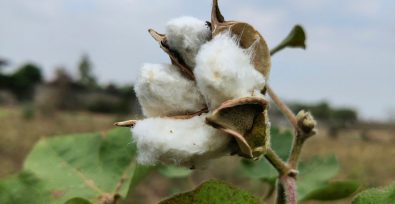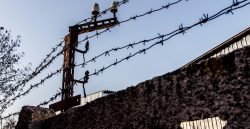Widespread labor violations were recently found on cotton farms in Madhya Pradesh, India. During Transparentem’s ten-month investigation child labor, debt bondage, abusive working conditions, in addition to other indicators of forced labor as defined by the ILO were uncovered. Further, 60 global brands have been linked to the three suppliers that source cotton from these farms. That means forced labor is likely hiding in retailers around the world.
What’s lurking beyond the first tier of the supply chain
Transparentem is an organization allied with workers and communities worldwide to uncover abuses in global supply chains and drive labor and environmental justice. Their recent investigation into labor conditions on 90 cotton farms in Madhya Pradesh, India revealed alarming practices, including egregious use of exploitative child labor. Ravi is a worker interviewed for the investigation who was raising his niece. He said she had started working in the cotton fields at age 11. For their survival, Ravi said he had little choice. Sadly, rather than taking her to school he had to bring her to the farm to work.
“There are many children (working on the farm). For the sake of our daily bread, we have to work. If we just let the child go to study, then how will we overcome our hunger?”
In addition, many children were found handling pesticides or working in environments where pesticides were used. There was also a lack of safety equipment and provisions like gloves or bandages, forcing workers and children to improvise.
“Sita”, another child worker who was 12 years old at the time of her interview, said:
“Our fingers get cut while doing it, and we have to do it very fast. The dried stems will prick, and it starts bleeding. There will be a small leaf, if we apply that, the bleeding will stop.”
Heartbreakingly, the youngest interviewees found working on the farms were six years old.
Low wages lead to further exploitation
Debt bondage is illegal in India, but many of the children interviewed were working to help repay family debts. The investigation found widespread debt bondage on the farms investigated. Likened by the ILO to slavery, families are bound to work to repay advances or loans from their employers. In addition, employers were often charging workers high interest rates. Thus preventing them ever being able to repay their debts.
Basically, poverty level wages mean families are unable to save money for unexpected expenses or cannot afford basic necessities. Consequently, this leads to them taking out a loan. A practice that ends up trapping workers in a cycle of debt. Many workers from farms connected to the supply chains of the three suppliers told investigators they had to take on debt to cover these costs.
An adult worker from one of the cotton farms said:
“Our debts continue throughout our life, once we repay a debt, we take another one.”
Indeed, workers interviewed said ordinary life events, like illness, medical treatment and needed home repairs that lead to these unexpected expenses, trapping them in modern slavery.
Accountability needed from top to bottom
Sadly, debt bondage and child labor were just the top forms of modern slavery uncovered by the investigation. Withholding wages, abusive working conditions and health hazards for children and adults were also revealed. That’s why the responsibility of buyers and suppliers to keep modern slavery out of their supply chains must extend across every level of the supply chain. Robust compliance efforts must extend down to the raw materials level. Freedom United stands beside Transparentem in calling for a collaborative approach that involves workers, farm owners, suppliers, governments, and NGOs.
The Executive Summary of the report states:
“Suppliers and their buyers working together have a significant opportunity to provide remedy to workers, end child labor and transform the cotton sector in Madhya Pradesh. If undertaken, this would set a global precedent.”
We join Transparentem in calling on buyers and suppliers to expedite due diligence and remediation and set a global precedent for ethical sourcing. Further, together we call on all companies sourcing from this region to act immediately to eliminate child labor, forced labor, and other abuses. You can join us in demanding companies do better by calling for people being put before profit, always.







Freedom United is interested in hearing from our community and welcomes relevant, informed comments, advice, and insights that advance the conversation around our campaigns and advocacy. We value inclusivity and respect within our community. To be approved, your comments should be civil.
It is too bad and shakes the heart deeply. It is not the India people expected from PM Modi………..shame on him.